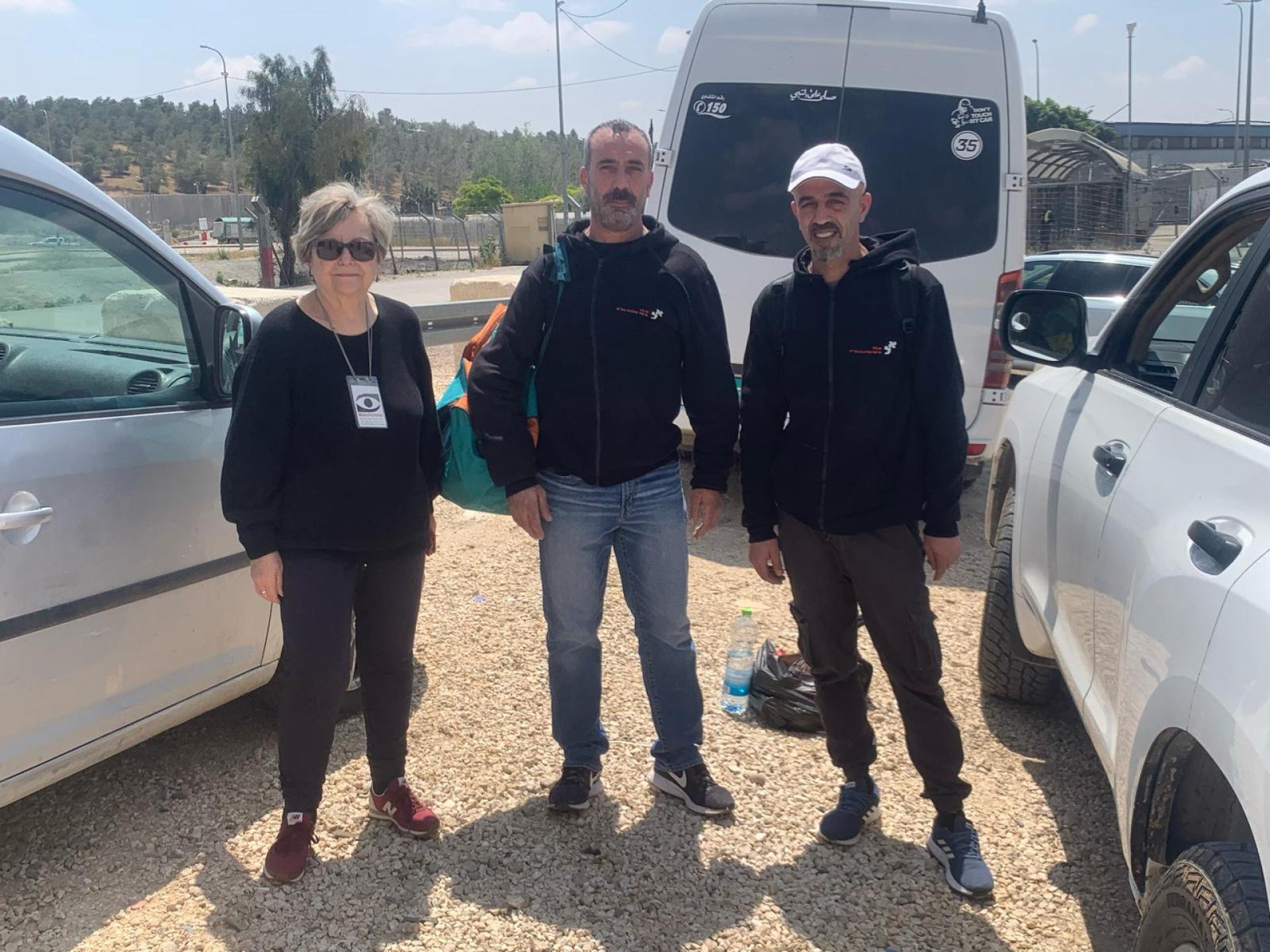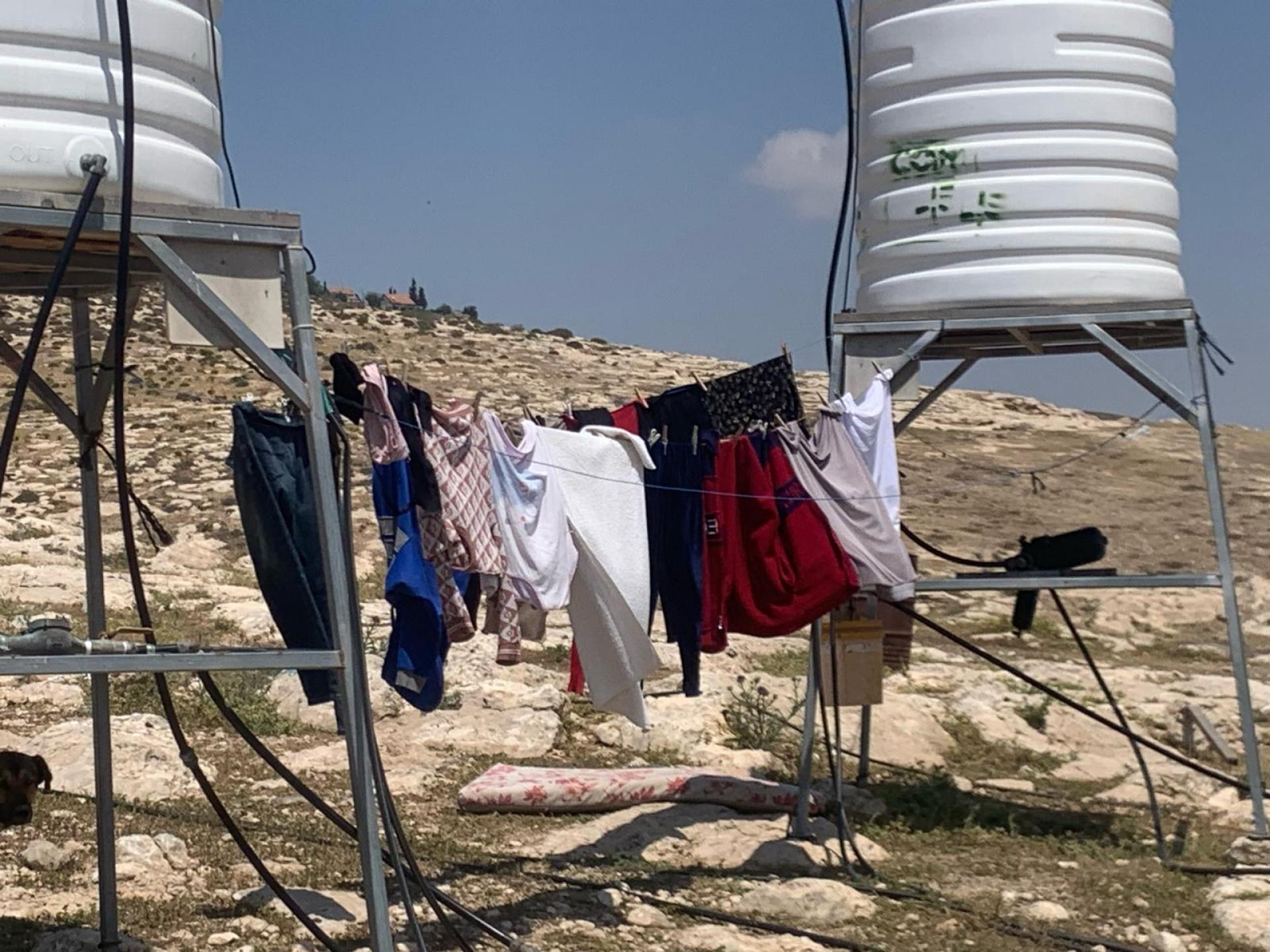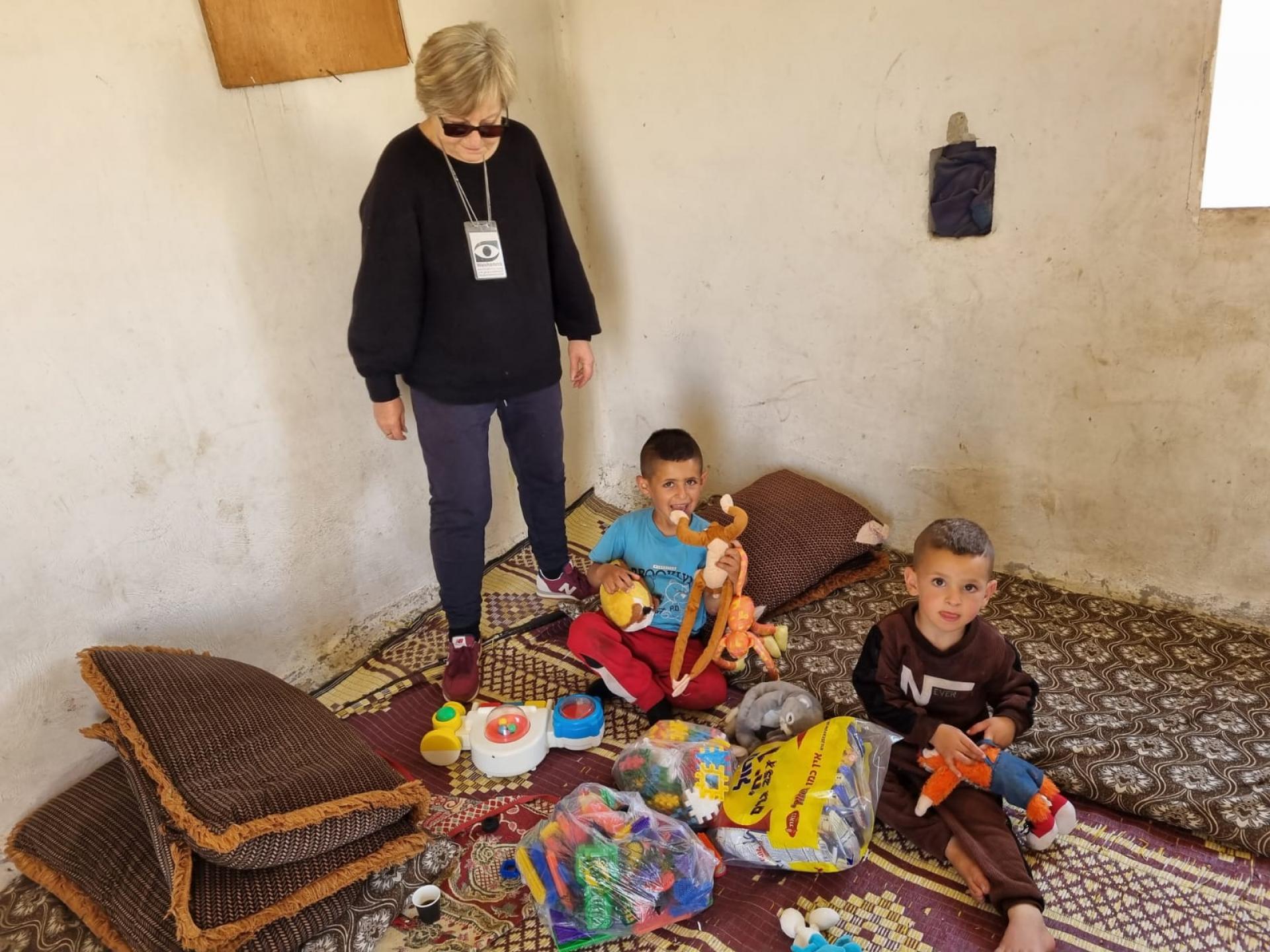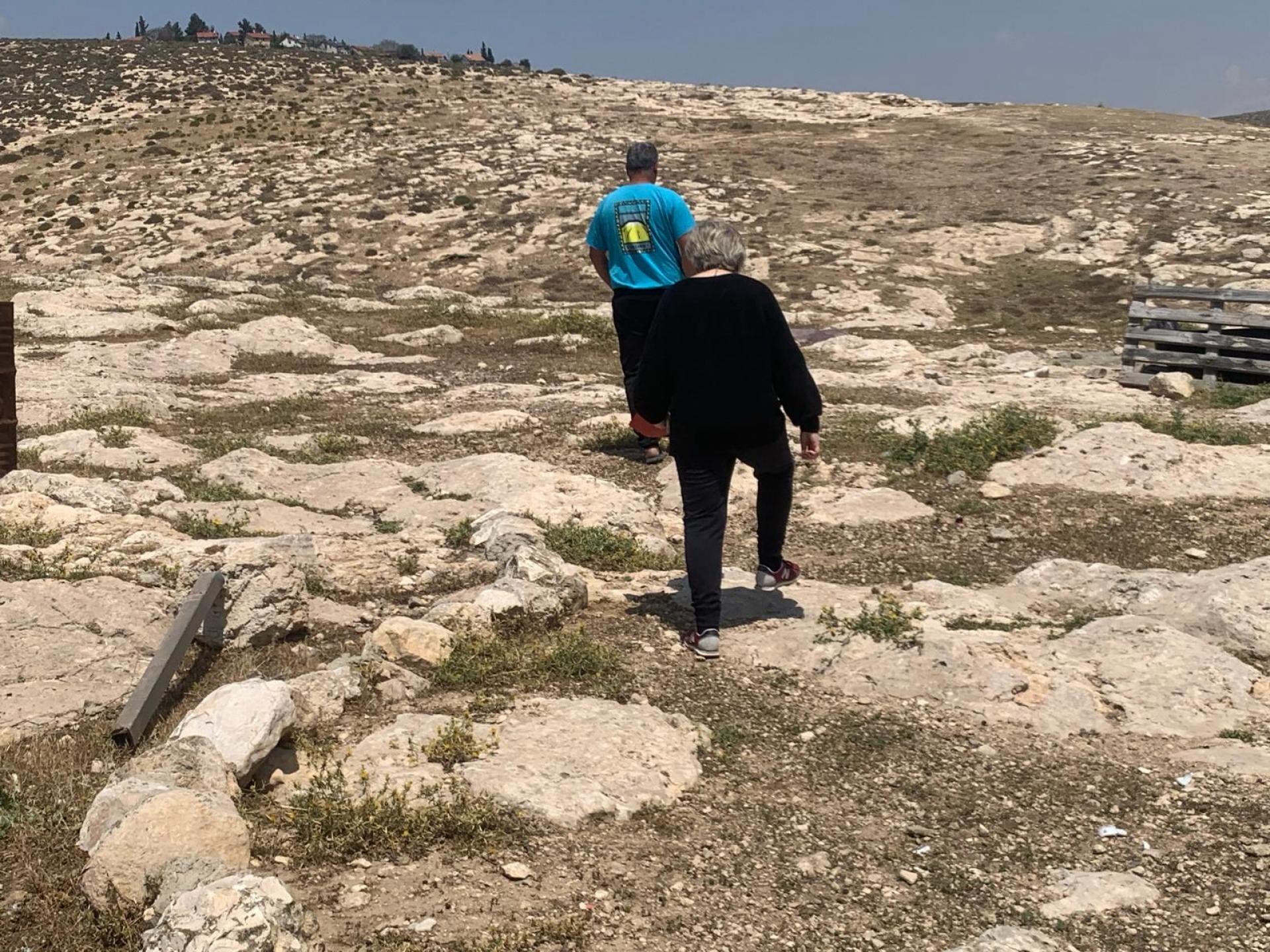Rahwa - Shlomo Mor and his son Aviad, accompanied by the army, instill fear and threaten
A shift to Rahwa
At the Meitar checkpoint we noticed a number of Palestinians and decided to try to talk to two of them. Both agreed and were even happy to chat.
One is from Yatta, the other from Sa’ir , near Hebron. Both have been working at a factory that supplies iron to Sderot for two years. They have permits because this is considered essential work. On Sundays they go to work and on Friday mornings they return home. At the Meitar checkpoint, a shuttle to the workplace awaits them. The employer pays the fee for the work permit for them.
In Rahwa we first meet Omar Jabarin, the father of the family. He and his wife have 12 children. Our plan was to go to the family we had already visited, but he signalled us to stop and invited us to his house. Omar has been working for decades in Israel, in the Beer Sheva, Omer, Meit and Lahavim, as an expert in renovations. Since the war, like the great majority, there are no work permits. Some of his sons also worked in Israel and have been at home for several months. Two of his sons shepherd the family flock of 150 head of sheep.
As we were told in all our visits, here too, flags were planted between the Tene Omarim settlement located on the hills above Rahwa, that border the grazing area, which makes it very difficult and forces the Palestinians to move to a less grassy area and to buy food for the sheep in sacks.
I ask about the attitude of the army and Omar says that in the middle of Ramadan, at noon one day, settlers arrived as we have already reported in previous reports. Shlomo Mor and his son Aviad, escorted by the army, rudely entered their house. The members of the Jabarin family politely asked what happened and why had they come in this way? Of course, the attitude did not change, and after several threats of intimidation, they left until the next time when they will come.
The younger children study in Dahariya and for 5 days live with family members and return on weekends. They go to school 3 days and two more days by Zoom.
The water is obtained from a number of wells on their property, and from the wells in pipes to the white tanks. They invited us to come again so that they could honour us with a meal.
From there we continued to the Altaka family, whom we visited in December 2023, and talked with the teacher, Majdi and his brother Jihad, who shepherds the family flock. Majdi travels to teach in Dura twice a week and the rest of the days by Zoom, which is conducted irregularly.
You have to see how they live to understand. Not really a house, and electricity that comes from a solar panel.
The mother of the two is also in the room, and says that she lives in fear of the army and the settlers, fear both day and night.
We left the two families we visited with clothes and games for the children, who were very happy.
This is the occupation.




